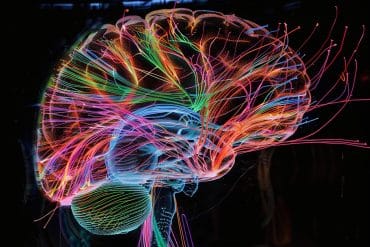Summary: According to researchers, social media use can help to reduce depression in older people who are in pain.
Source: University of Michigan.
With a few finger strokes or swipes on a computer or cell phone, seniors with pain reduce the risk of depression when visiting social media sites.
In a newly published University of Michigan study, researchers reported that using social media can reduce the negative health effects of curtailed social contact that comes as a consequence of pain.
The findings are significant among an aging society where social isolation and loneliness are key determinants of well-being, said Shannon Ang, the study’s lead author and doctoral candidate at the U-M Department of Sociology and Institute for Social Research.
“Our results may be possibly extended to other forms of conditions (e.g., chronic illnesses, functional limitations) that, like pain, also restrict physical activity outside of the home,” Ang said.
Ang, along with Tuo-Yu Chen of Nanyang Technological University in Singapore, used data from a nationally representative survey involving more than 3,400 Medicare beneficiaries aged 65 and older in 2011. The respondents were asked about depression, pain and their social participation.

The data, however, does not distinguish between the types of social media that older adults use–although 17 percent of them had used a social networking site in the last month. To capture if purported benefits were from social media and not just from general internet use, the analysis was adjusted for various online uses such as paying bills or shopping for groceries, Ang said.
The findings showed older adults who experienced pain were less likely to participate in social activities that require face-to-face interactions, which offers mental benefits.
Still, social media may preserve cognitive function and psychological well-being in this population, the researchers said.
“This is critical because the onset of pain can often lead to a downward spiral of social isolation and depression, resulting in adverse outcomes for the health of older adults,” Ang said.
Source: Jared Wadley – University of Michigan
Publisher: Organized by NeuroscienceNews.com.
Image Source: NeuroscienceNews.com image is in the public domain.
Original Research: Abstract for “Going online to stay connected: Online social participation buffers the relationship between pain and depression” by Shannon Ang, MA and Tuo-Yu Chen, PhD in Journal of Gerontology Series B. Published September 27 2018.
doi:10.1093/geronb/gby109
[cbtabs][cbtab title=”MLA”]University of Michigan”Social Media Buffers Against Depression in Older Adults in Pain.” NeuroscienceNews. NeuroscienceNews, 16 October 2018.
<https://neurosciencenews.com/social-media-pain-depression-10036/>.[/cbtab][cbtab title=”APA”]University of Michigan(2018, October 16). Social Media Buffers Against Depression in Older Adults in Pain. NeuroscienceNews. Retrieved October 16, 2018 from https://neurosciencenews.com/social-media-pain-depression-10036/[/cbtab][cbtab title=”Chicago”]University of Michigan”Social Media Buffers Against Depression in Older Adults in Pain.” https://neurosciencenews.com/social-media-pain-depression-10036/ (accessed October 16, 2018).[/cbtab][/cbtabs]
Abstract
Objectives
Maintaining offline social participation (i.e. face-to-face social interaction) is key for healthy aging, but older adults who experience pain tend to restrict their social activity outside of the home. The onset of pain may set off a downward spiral where lowered social participation increases the risk of depression and vice versa. This study thus assesses whether online social participation (i.e., the use of online social network sites) moderates the effect of pain on depression, possibly functioning as a compensatory mechanism for reduced offline social participation for those in pain.
Method
Logistic regression models with a lagged dependent variable were used with panel data from the National Health and Aging Trends Study. An interaction term was included to assess the moderating effect of online social participation.
Results
We find that online social participation buffers the detrimental effect of pain on depression. However, the effect of pain on online social participation was not statistically significant.
Discussion
Findings show that online social participation can alleviate the negative effects of pain on mental well-being, and suggest that online social participation can supplement attempts to maintain offline social participation in later life, especially for those whose social activity may be limited by pain.






